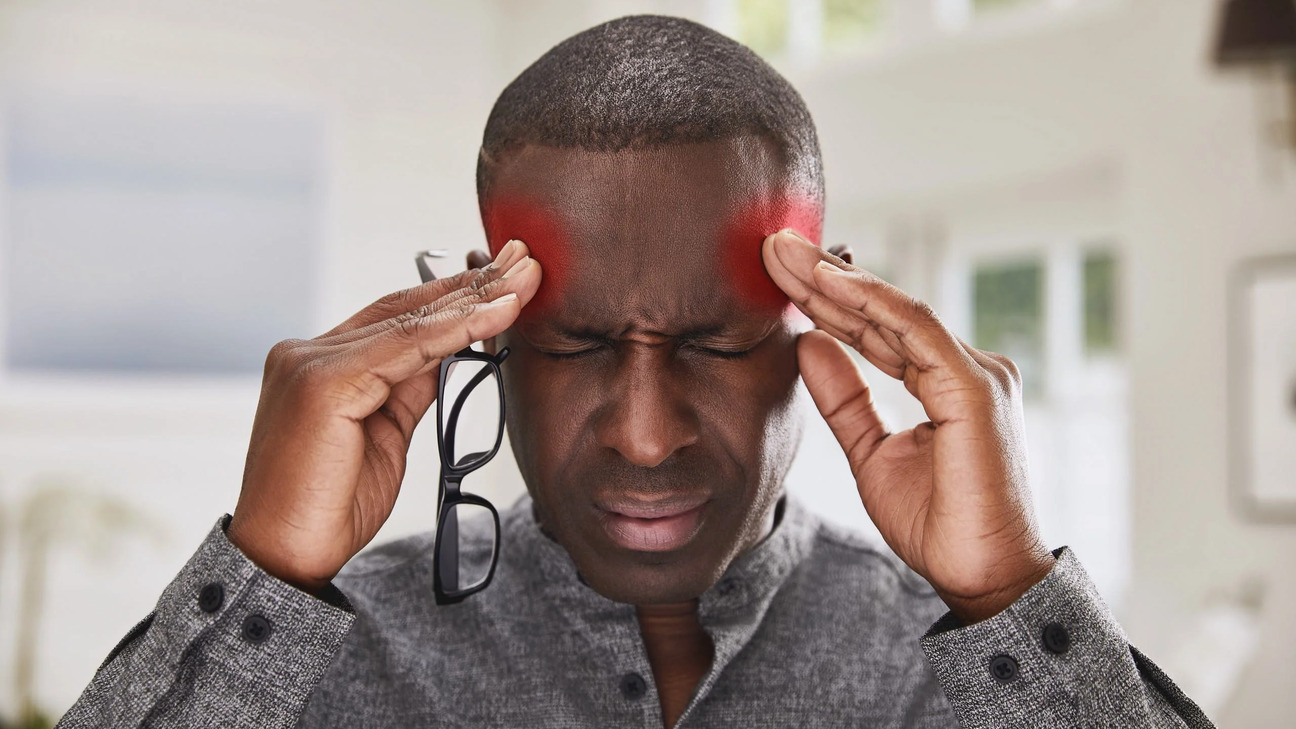Evidence Based
This article relies on solid scientific evidence, authored by experts, and thoroughly fact-checked by specialists.
Our team of licensed nutritionists and dietitians strives to maintain objectivity, impartiality, and honesty. We aim to present a fair representation of both sides of the argument.
Scientific references are included throughout this article. The numbers in parentheses (1, 2, 3) are clickable links to peer-reviewed scientific papers. These sources further support the information provided.

Migraines are more than just severe headaches; they are a complex neurological condition that can significantly impact a person’s quality of life. Characterized by intense, throbbing pain, often accompanied by nausea, vomiting, and sensitivity to light and sound, migraines can be debilitating. If you’re one of the millions of people who suffer from migraines, you know how crucial it is to find effective ways to cope with them.
The duration of a migraine attack can vary, typically lasting anywhere from 4 to 72 hours, although it is possible for attacks to extend beyond this timeframe. In addition to the headache itself, individuals may experience intense nausea, vomiting, and heightened sensitivity to light and sound during a migraine episode (1
National Institute of Neurological Disorders and Stroke
Governmental authority
Go to source ).
In this comprehensive guide, we’ll explore six strategies that can help you manage and mitigate the impact of migraines on your life.
Understanding Migraines
Before we delve into coping strategies, let’s briefly discuss what migraines are and why they occur. Migraines are a type of headache disorder characterized by recurrent, moderate to severe headaches. They typically last from a few hours to several days and are often accompanied by other symptoms such as:
- Nausea and vomiting
- Sensitivity to light (photophobia)
- Sensitivity to sound (phonophobia)
- Visual disturbances (aura)
Migraines can be triggered by various factors, including hormonal changes, certain foods, stress, and environmental factors. Understanding your migraine triggers is essential for effective management.
Summary
In the first part of our comprehensive guide, we delve into the intricacies of migraines, going beyond the surface of these debilitating headaches to explore their neurological nature and common symptoms. By establishing a foundational understanding of what migraines entail, readers are better equipped to navigate the subsequent coping strategies effectively.
Coping Strategy 1: Keep a Migraine Diary
One of the first steps in coping with migraines is to keep a detailed migraine diary. This involves recording when your migraines occur, their duration, and any potential triggers. By identifying patterns in your migraines, you can take proactive steps to avoid triggers and reduce the frequency and severity of your attacks.
To maintain a migraine diary, consider using a dedicated app or a simple notebook. Note the following information:
- Date and time of the migraine
- Duration of the migraine
- Severity of the pain (on a scale of 1 to 10)
- Possible triggers (e.g., specific foods, stress, hormonal changes)
- Medications or treatments used and their effectiveness
Over time, this data can help you and your healthcare provider develop a more targeted treatment plan.
Coping Strategy 2: Lifestyle Modifications
Certain lifestyle modifications can significantly reduce the frequency and severity of migraines. Here are some practical steps to consider:
Manage Stress
Stress is a common migraine trigger. Learning stress management techniques such as deep breathing, meditation, and progressive muscle relaxation can help you reduce stress and prevent migraine attacks.
Maintain Regular Sleep Patterns
Disrupted sleep patterns can trigger migraines. Aim for a consistent sleep schedule by going to bed and waking up at the same time each day, even on weekends.
Stay Hydrated
Dehydration can exacerbate migraines. Ensure you drink an adequate amount of water throughout the day, and limit your intake of caffeine and alcohol, which can contribute to dehydration.
Avoid Trigger Foods
Identify and avoid foods that trigger your migraines. Common culprits include aged cheeses, processed meats, and foods containing MSG or artificial sweeteners.
Coping Strategy 3: Medications and Treatments
Several medications and treatments are available to help manage migraines. These can be broadly categorized into two groups: acute treatments for relieving migraine symptoms during an attack and preventive treatments for reducing the frequency and severity of migraines.
Acute Medications
- Over-the-Counter Pain Relievers: Non-prescription medications like ibuprofen or aspirin can help alleviate migraine pain.
- Prescription Medications: Triptans, such as sumatriptan, are commonly prescribed to relieve migraine symptoms.
- Anti-Nausea Medications: If nausea is a significant symptom, medications like ondansetron may be prescribed.
Preventive Medications
- Anticonvulsants: Certain anticonvulsant medications like topiramate and valproate can be effective in reducing the frequency of migraines.
- Beta-Blockers: Medications like propranolol are sometimes used as migraine preventives.
- Botulinum Toxin Injections: Botox injections have been approved for chronic migraine prevention.
Coping Strategy 4: CBT and Biofeedback
Cognitive-behavioral therapy (CBT) and biofeedback are non-pharmacological approaches that can be beneficial for migraine management.
Cognitive-Behavioral Therapy (CBT)
CBT is a type of talk therapy that focuses on identifying and changing negative thought patterns and behaviors. It can help individuals develop coping strategies for dealing with migraine triggers and reducing the emotional impact of migraines.
Biofeedback
Biofeedback is a technique that teaches individuals to control physiological functions such as heart rate and muscle tension. Through biofeedback, you can learn to control certain bodily responses, potentially reducing the frequency and severity of migraines.
Summary
Strategies 3 & 4 delve into the world of migraine management through medications and treatments. They provide an in-depth look at both acute and preventive measures, encompassing over-the-counter and prescription medications, as well as non-pharmacological options like cognitive-behavioral therapy (CBT) and biofeedback. These two sections equip readers with knowledge about the diverse array of tools available for managing migraine attacks and preventing their recurrence, offering hope for a more pain-free future.
Coping Strategy 5: Hormonal Management
For some individuals, hormonal changes can trigger migraines. Hormonal management may involve birth control methods that regulate hormone levels, such as oral contraceptives or hormone replacement therapy (HRT). Discuss these options with your healthcare provider to determine if they are suitable for you.
Coping Strategy 6: Alternative and Complementary Therapies
While not a substitute for medical treatment, some alternative and complementary therapies may provide relief from migraines. These include:
- Acupuncture: Some people find acupuncture sessions to be effective in reducing the frequency and severity of migraines.
- Herbal Remedies: Certain herbs, like feverfew and butterbur, have been studied for their potential migraine-preventive properties. Always consult with a healthcare provider before trying herbal remedies.
- Massage and Chiropractic Care: These therapies can help relieve muscle tension and reduce stress, potentially preventing migraines.
Conclusion
Living with migraines can be challenging, but by implementing a combination of these coping strategies, you can regain control over your life. Remember that each person’s experience with migraines is unique, so it may take time to find the right combination of strategies that work for you. Consult with a healthcare provider to develop a personalized migraine management plan, and don’t hesitate to seek support from migraine support groups or organizations dedicated to migraine research and education. With determination and the right resources, you can master migraines and enjoy a better quality of life.




